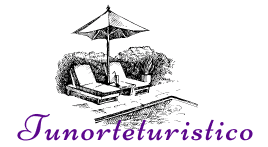The Eisteddfod is an integral part of Welsh culture and tradition, offering a vibrant celebration of the nation’s language, music, poetry, and arts. This festival, steeped in history, is a must-experience event for anyone interested in exploring the rich cultural heritage of Wales. Whether you’re a first-time visitor or a seasoned attendee, understanding the nuances of this grand festival can significantly enhance your experience.
The Essence of Eisteddfod: A Deep Dive into Welsh Tradition
The Eisteddfod is more than just a festival; it is a profound celebration of the Welsh language and culture, held annually in different locations across Wales. The term “Eisteddfod” translates to “session” or “sitting” in English, reflecting the event’s origins as a gathering of poets and musicians. Today, the National Eisteddfod of Wales is one of the most significant cultural festivals in Europe, attracting thousands of visitors each year.
A lire en complément : How can you avoid the crowds when visiting Stonehenge?
The Eisteddfod is traditionally held on the maes, an open field or park, transforming it into a bustling hub of cultural activities. The festival’s roots can be traced back to the 12th century, with the modern format established in the early 19th century by Iolo Morganwg. The event is a testament to the enduring spirit of the Welsh people, showcasing their talents in poetry, music, and other arts.
One of the highlights of the Eisteddfod is the Gorsedd of the Bards ceremony, where individuals are honored for their contributions to Welsh culture. This ceremony, led by the Archdruid, is a spectacle of tradition and pageantry, featuring ceremonial robes, ancient rituals, and the crowning of the bardic chair and crown. These titles are awarded to outstanding poets and prose writers, symbolizing the pinnacle of literary achievement in Wales.
Sujet a lire : Convenient transfers from da nang airport to hoi an: your guide
Key Events to Look Out For During the National Eisteddfod
Participating in the National Eisteddfod offers an array of experiences that cater to all interests. From the Gorsedd ceremonies to lively musical performances, the festival is packed with events that highlight the best of Welsh culture.
Gorsedd of the Bards Ceremonies
The Gorsedd of the Bards ceremonies are among the most anticipated events of the National Eisteddfod. These ceremonies, held to honor individuals who have made significant contributions to Welsh culture, are a blend of tradition, music, and poetry. The Archdruid presides over the ceremonies, which include the crowning of the bardic chair and the presentation of the goron crown. These prestigious awards celebrate the best in Welsh literature and are a symbol of national pride.
Music and Poetry Competitions
Music and poetry are at the heart of the Eisteddfod. The festival features numerous competitions where participants showcase their talents in various categories. From solo vocal performances to choral groups, and from traditional Welsh music to contemporary compositions, the Eisteddfod is a celebration of musical diversity. The poetry competitions, on the other hand, are a revered tradition, with poets competing for the coveted Chair and Crown. These competitions highlight the richness of the Welsh language and the creativity of its people.
Cultural Pavilions and Stalls
The Eisteddfod maes is dotted with cultural pavilions and stalls that offer a glimpse into different aspects of Welsh life. From art exhibitions and craft workshops to food stalls serving traditional Welsh delicacies, the maes is a vibrant marketplace of culture. Visitors can engage with artisans, attend literary discussions, and even purchase unique Welsh souvenirs. The Urdd Eisteddfod, a youth festival held in conjunction with the National Eisteddfod, provides a platform for young talents to showcase their skills.
Evening Concerts and Performances
As the sun sets, the Eisteddfod transforms into a hub of entertainment with evening concerts and performances. These events feature a mix of traditional and contemporary acts, offering something for every taste. From folk bands to classical ensembles, the evening performances are a perfect way to unwind and soak in the festive atmosphere. Many of these concerts are held in large tents or open-air stages, adding to the communal feel of the event.
Planning Your Visit: Practical Tips for Festival-Goers
Attending the Eisteddfod requires some planning to make the most of your visit. Here are some practical tips to help you navigate the festival with ease.
Choosing the Right Accommodation
Accommodation can fill up quickly during the National Eisteddfod, so it’s advisable to book well in advance. Options range from hotels and guesthouses to camping sites and caravan parks. For a truly immersive experience, consider staying in a traditional Welsh cottage or a bed and breakfast run by local families. This not only supports the local economy but also allows you to experience Welsh hospitality firsthand.
Navigating the Maes
The maes can be overwhelming with its numerous tents, stages, and pavilions. It’s a good idea to grab a festival map upon arrival and plan your day accordingly. Identify the events you don’t want to miss and allocate time for exploring the various stalls and exhibitions. Comfortable footwear is essential, as you’ll likely be doing a lot of walking.
Embracing the Welsh Language
The Eisteddfod is a celebration of the Welsh language, and while many events are bilingual, a basic understanding of Welsh can enhance your experience. Consider learning a few common phrases or investing in a Welsh-English dictionary. Many locals are more than willing to help visitors practice their Welsh, making it a great opportunity to immerse yourself in the language.
Engaging with the Culture
The Eisteddfod is not just about watching performances; it’s about engaging with the culture. Attend workshops, participate in interactive sessions, and don’t be afraid to strike up conversations with fellow attendees. The festival is a melting pot of people from all walks of life, united by their love for Welsh culture.
Celebrating Heritage: The Impact of Eisteddfod on Welsh Culture
The Eisteddfod plays a crucial role in preserving and promoting Welsh culture. It serves as a platform for artists, musicians, and poets to showcase their talents and contribute to the cultural landscape of Wales. The festival’s emphasis on the Welsh language encourages its use and helps keep it alive for future generations.
Promoting the Welsh Language
One of the most significant impacts of the Eisteddfod is its role in promoting the Welsh language. The festival is a celebration of all things Welsh, with the language at its core. Through competitions, workshops, and performances, the Eisteddfod provides a platform for Welsh speakers to express themselves and for learners to immerse themselves in the language. This has a positive ripple effect, encouraging the use of Welsh in everyday life and helping to ensure its survival.
Showcasing Talent
The Eisteddfod offers a stage for emerging and established artists to showcase their talents. From poets and musicians to visual artists and playwrights, the festival celebrates the diversity of Welsh creativity. This not only nurtures individual talent but also enriches the cultural fabric of Wales. The recognition and awards given during the Eisteddfod can be career-defining, providing artists with the visibility and opportunities they need to succeed.
Fostering Community Spirit
The Eisteddfod is a communal celebration that brings people together. It fosters a sense of pride and belonging among the Welsh people and offers a space for the community to come together and celebrate their shared heritage. This sense of community spirit is palpable during the festival, creating a welcoming and inclusive atmosphere for all attendees.
Preserving Traditions
The Eisteddfod is steeped in tradition, and its continued celebration helps preserve these customs for future generations. The Gorsedd ceremonies, the crowning of the bardic chair and crown, and the emphasis on Welsh arts and literature are all vital aspects of the festival that keep Welsh traditions alive. By participating in the Eisteddfod, attendees contribute to the preservation of these rich cultural practices.
Experiencing a traditional Welsh Eisteddfod festival is an enriching journey into the heart of Welsh culture. From the grandeur of the Gorsedd ceremonies to the vibrant performances and competitions, every moment at the Eisteddfod is a celebration of the Welsh language and heritage. By understanding the festival’s significance and planning your visit effectively, you can immerse yourself fully in this unique cultural experience.
The Eisteddfod is more than just a festival; it’s a testament to the enduring spirit and creativity of the Welsh people. It offers a rare opportunity to engage with a living tradition and to witness the power of language, music, and art in shaping a community. Whether you’re drawn by the poetry, the music, or the cultural camaraderie, the Eisteddfod promises an unforgettable experience that will leave you with a deeper appreciation of Welsh culture.











